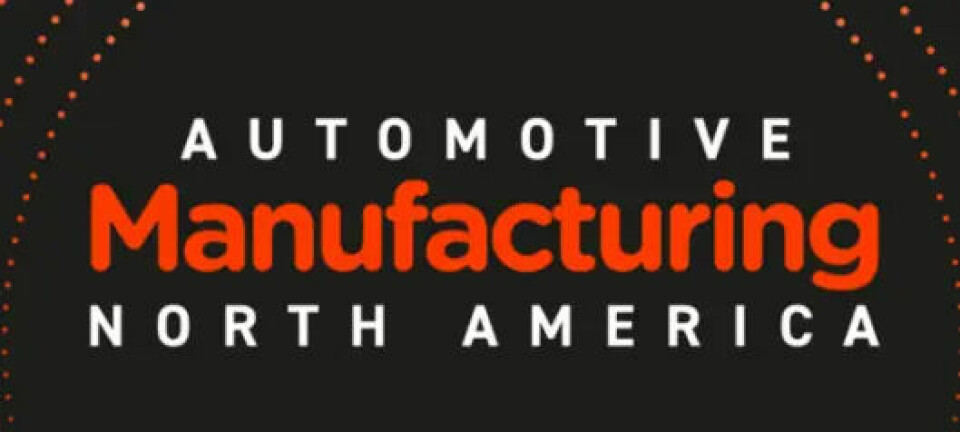Analysis: Production Disruption
Novelis hot mill fire risks $1bn hit to Ford F-150 output, exposing heavy reliance on aluminium body-in-white

A fire at Novelis’ aluminium rolling and recycling plant in New York is set to disrupt Ford’s supply of aluminium for its F-150, with analysts warning the production impact could cost the carmaker as much as $1 billion.
The fire broke out at Novelis’ aluminium factory in Oswego, New York on September 16, with the company confirming in a statement that no one was injured in the fire. In its latest update on October 6, the firm said it was “working around the clock” to restore the facility’s hot mill, but doesn’t expect it to be back in operation until early 2026.
“We have activated Novelis’ global network of plants and are also partnering with industry peers to source material in order to help mitigate the gap in supply,” the statement noted.
Ford, as one of Novelis’ largest customers, stands to be substantially impacted by the factory’s inactivity. Since a redesign in 2015, its F-150 truck model has relied heavily on aluminium for parts such as its cab, box and doors. The F-150 Lightning electric truck, introduced in 2022, also uses an aluminium alloy body and bed.
“Novelis is one of several aluminium suppliers to Ford,” a Ford spokesperson said in a statement. “Since the fire nearly three weeks ago, Ford has been working closely with Novelis, and a full team is dedicated to addressing the situation and exploring all possible alternatives to minimise any potential disruptions."
Analysts from Evercore ISI have estimated that the fallout from the fire could result in a $500m to $1 billion hit to Ford's bottom line. In its annual report published in May this year, Novelis also identified GM and Stellantis as some of its customers in North America. One Evercore ISI analyst suggested Ford would be the most affected by the incident, but remarked that the firm is “continuing to check knock-on effects for other manufacturers.
Analysis: Manufacturing implications and contingency planning
The extended shutdown of the Novelis hot mill goes beyond a straightforward logistical setback and represents a significant material supply constraint that affects Ford’s North American manufacturing strategy, exposing critical vulnerabilities in the automotive body-in-white (BIW) production chain. The most immediate challenge lies in the role of the hot mill. This is not a facility for small parts but one where cast aluminium ingots are rolled, under extreme heat and pressure, into the wide, thin coiled sheets required for automotive use.
The aluminium alloys used for the F-150’s lightweight, high-strength body panels (cab, box, doors) are often proprietary or highly specialised, such as Novelis’ Advanz™ series. These sheets must meet precise gauge, width and metallurgical properties to withstand the severe deformation of stamping needed to create body parts without tearing or cracking.
The Oswego hot mill is a vast, high-volume operation. Sourcing equivalent replacement material at scale is extremely difficult. Even with Novelis activating its global network, transporting large volumes of wide-gauge sheet metal across oceans adds considerable time, cost and risk, directly influencing the cost of goods sold (COGS) for every F-150 built. Ford’s stamping plants, which feed the assembly lines, are tooled specifically for certain material dimensions and characteristics.
Any replacement material sourced from a competitor or from Novelis’ international plants must match the existing tooling requirements precisely to avoid costly, time-consuming die adjustments or quality failures on the line.
Manufacturing dependency and risk mitigation
The incident highlights the strategic risk Ford assumed with its lightweighting strategy, which made the F-150 highly dependent on high-volume aluminium sheet suppliers. Qualifying a new aluminium supplier, especially a non-automotive one, is a process that can take a year or more. It requires rigorous testing of the material’s performance in the stamping press, its weldability on the assembly line, resistance to corrosion and crash performance. The 2026 restart date forces Ford to accelerate this complex supplier qualification process for alternatives.
Lead times for aluminium sheet are long. Production planners now face the task of constantly adjusting the truck mix and managing inventories of other parts (engines, interiors, chassis) based on the uncertain and fluctuating availability of body panel material. This creates production volatility and the potential for line slowdowns, which is the direct cause of the projected financial impact.
While Novelis is drawing on its global network, that material is typically committed to other carmakers. Ford’s solution involves a delicate, global capacity juggling act that may push other manufacturers down the priority list or require complex material swaps and expedited transport, significantly increasing manufacturing overheads.
Knock-on effects for advanced automotive manufacturing
The disruption will have secondary effects on future manufacturing plans, particularly for the F-150 Lightning and other electrified models. Ford may be forced to prioritise the limited aluminium supply for its highest-margin or most strategically important models—likely the Lightning EV and high-trim internal combustion engine (ICE) F-150s—at the expense of lower-trim versions. This is a deliberate production strategy decision.
Novelis is also a major recycler. The disruption interrupts the entire closed-loop recycling system Ford had established, whereby scrap from its stamping plants is returned to Novelis to be reprocessed into new sheet metal. This will temporarily oblige Ford to pay higher costs for primary (non-recycled) aluminium and will complicate its sustainability reporting.
Ultimately, the Novelis fire stands as a sharp case study in supply chain resilience within high-volume automotive manufacturing, forcing Ford to implement costly contingency measures to secure a core input material critical to its best-selling product.







